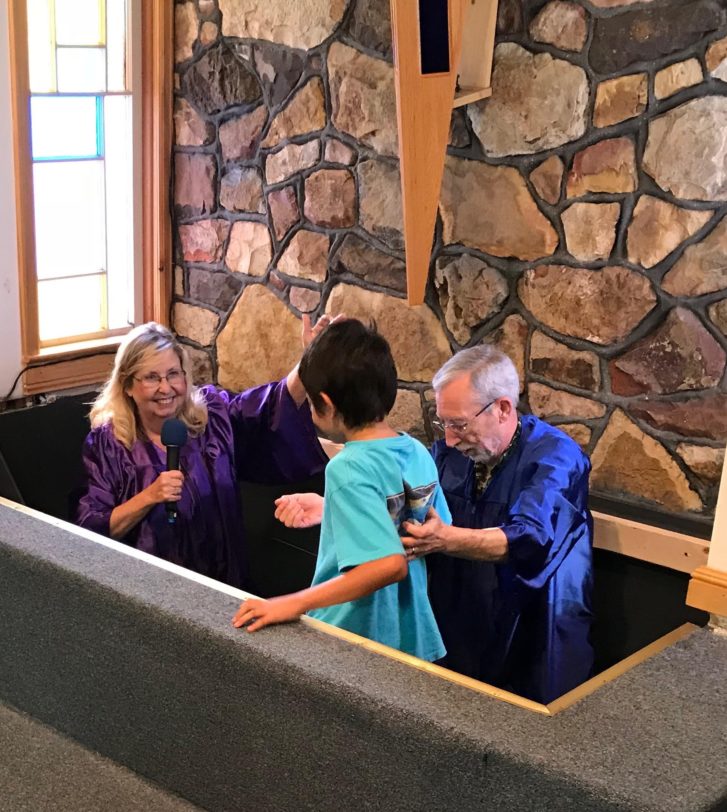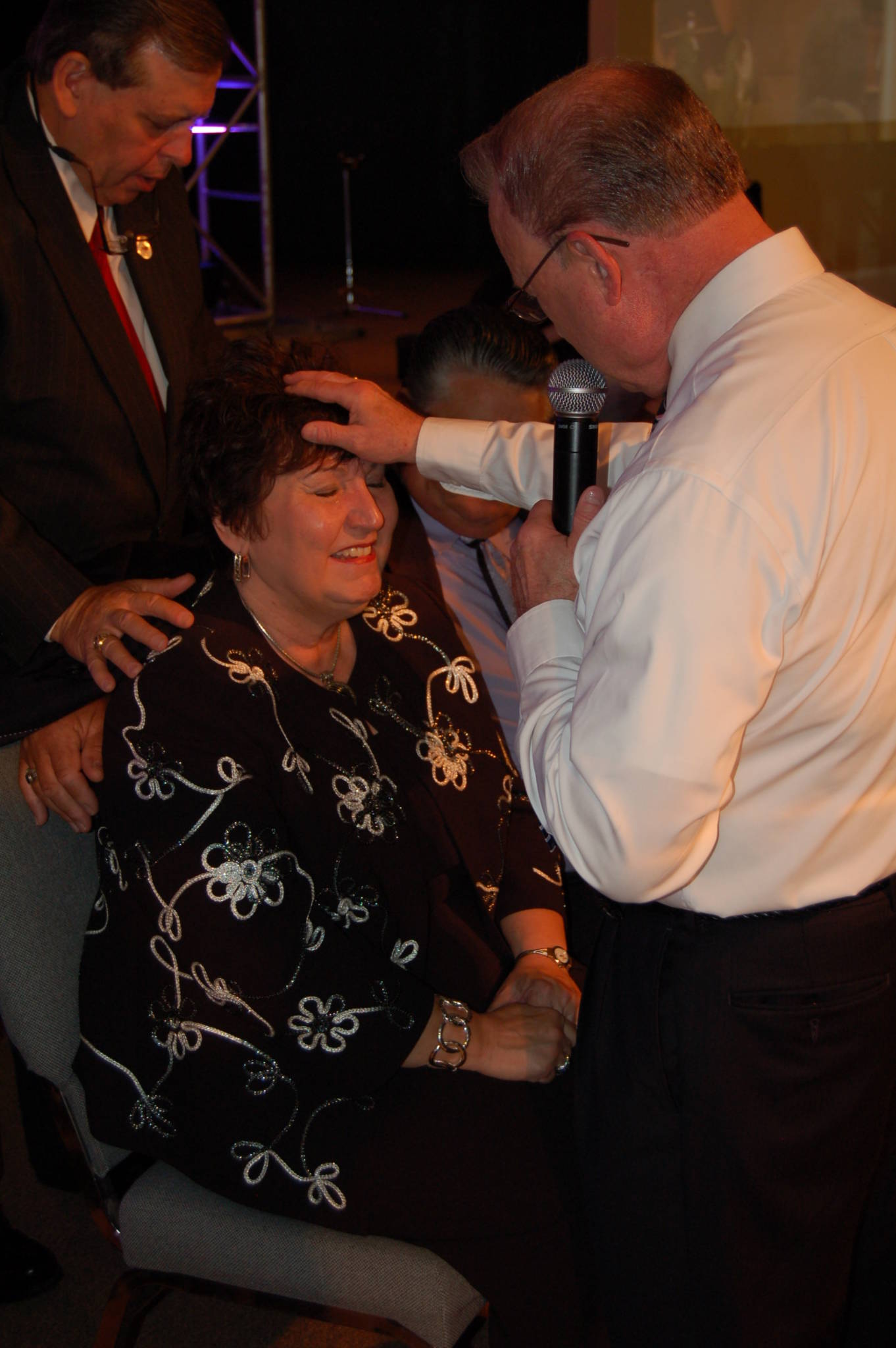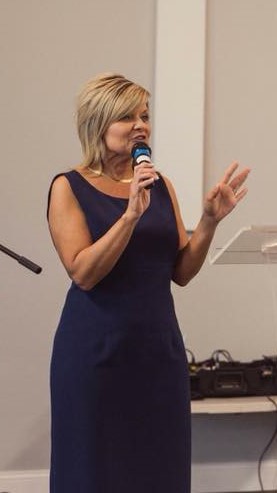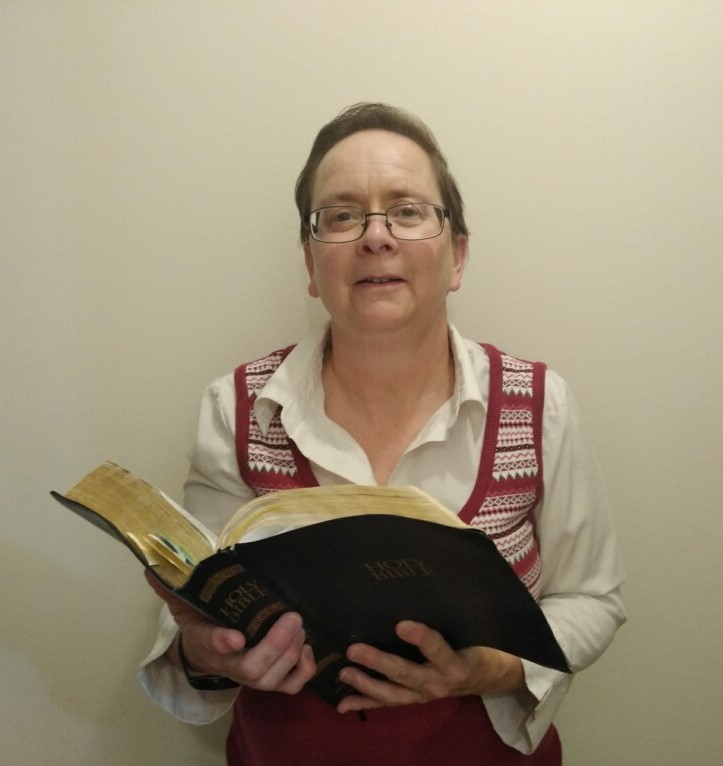
Rev. Debbie Hutton, pastor of Faith Temple, baptizes a child.
The IPHC has a rich history of affirming women in ministry. Like the women who were the first to tell the good news of Jesus’ resurrection, IPHC women have blazed trails of ministry as pastors, evangelists, and missionaries. They have held evangelistic crusades, planted churches, raised money for our colleges, started medical clinics overseas, and cared for orphans.
Women have always been on the front lines of ministry in the IPHC, and today, more than ever, the church is seeing record numbers of women pursuing ministerial credentials.
The Appalachian Conference is leading the way in recognizing women who are called to ministry. In its early years, the conference welcomed and supported female missionaries like Fannie Lowe, the IPHC’s first medical missionary to Hong Kong, and multiple women evangelists. Today, the conference has a record 106 credentialed women – nearly 25% of their total ministers – including 22 women serving as senior pastors, co-pastors, or full-time staff at larger churches.

In 2010, Pastor Wanda Myers became the first woman elected to the Executive Council.
Appalachian Conference Bishop Preston Mathena says their conference is seeing women of all ages answer the call to ministry. I recently spoke with Bishop Mathena about his conference’s unique history of women in ministry, as well as his thoughts on providing an atmosphere that affirms women who are called to ministry today.
The Appalachian Conference currently has the largest number of women ministers in the IPHC. Why do you think your conference has been so successful at the inclusion and expansion of women in ministry?
This has to begin with the vision of the conference bishop and council and their promotion in word and deed of their desire to see all individuals find their place at the table. In the Appalachian Conference, there has always been and will always be a place set at the table for women to lead, equip, share, and have a voice.
The Appalachian Conference has a long history of not only endorsing women in ministry but also of accepting, acknowledging and validating their call to ministry. Early on, several single ladies were career missionaries. We also had female evangelists as well as a number of ladies who were involved in pastoral ministry in specific locations.

Pastor Tammy Porter was appointed the conference Women’s Ministries director in 2018.
In recent years, we are seeing more women pursue the call to ministry. They are not only in pastoral roles; women have and continue to fill the roles of assistant pastor, deaconess, trustee, youth, children and worship pastor/leaders.
While women have served in pastoral and supportive roles within the church and conference for many years, over eight years ago we had our first lady elected to the Conference Executive Council via nomination from the floor, receiving overwhelming acceptance and endorsement on a first ballot. She has continued to serve the conference in this role with distinction and honor, thus confirming the mindset and value of women in ministry.
What benefits has your conference experienced as more women have become licensed and ordained?
Women have helped broaden the discussion and understanding as we look at church growth, evolving leadership, and the need for involvement of every individual in the body of Christ for us to be effective.
We often find greater involvement on the conference level with women pastors.
Pulpits that may have remained open for an extended period of time have been filled because women were trained, ready, available, and willing to assume these pulpits.
Women often have an added sensitivity to the Spirit and a dynamic prayer ministry.
Women often bring more advanced administrative skills and an increased desire for excellence.
Even from back in my years as a senior pastor with several women on staff, in general, I find that women bring a strong work ethic.
Is credentialing something that is more appealing to younger women, or are you seeing women of all ages pursue ministerial training?
The conference councils have been receptive and encouraging to women of all ages who felt a call of God and have supported them in fulfilling their God-given destiny. One young lady received her license at age 17. This past year we credentialed two women in their 20’s who were completing their college degrees – one in pastoral ministry and the other in communication. Both joined The Awakening team. We also have those who left a previous career or began a second career to step into pastoral ministry. Two ladies in our conference accepted senior pastoral roles after retirement – one from a career in banking and one in social work.
As you’ve already referenced, women have served in ministerial roles in IPHC churches since the early years, but some have not pursued credentialing. What are the benefits of becoming a credentialed minister, even if a woman is already serving in a leadership capacity?
Five specific benefits come to mind: training, accountability, opportunity, camaraderie; and affirmation.
With each of these, when women choose the path of licensing and ordination, they find a greater understanding of the broader vision and purpose of the IPHC. Our whole mindset is one of “team.” Credentialing gives a sense and feeling of acceptance and belonging.
Because of increased opportunity, we are seeing those who have grown up in the church and recognize the call of God, take on the role of leadership. I am always excited to see the unique things that God is doing among us.

Rev. Donna Hankla is a pastor and the conference WIN director.
What advice would you give to leaders who want to encourage and raise up more women in leadership and ministry?
Follow the leadership of the Holy Spirit and allow God to elevate women fulfilling His call. Honor and accept their value, their presence, and place in ministry, making good use of their giftings in conference positions, development, teaching, training, and leadership. Simply do what you can to open the door to these gifted ladies.


